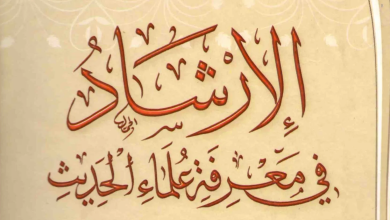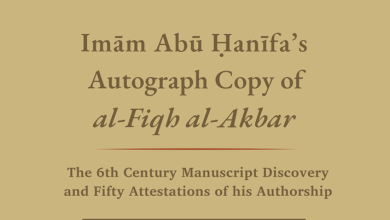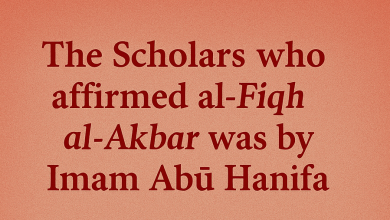Between Salafism and Traditionalism: The Case of Nasir al-Din al-Albani
Dr. Emad Hamdeh delivered an insightful lecture on the topic “Between Salafism and Traditionalism: The Case of Nasir al-Din al-Albani and His Detractors” on March 12, 2015, at the IIIT Headquarters in Herndon, VA.
Dr. Hamdeh is an adjunct professor of Arabic and Islamic Studies in Montclair, NJ. He specializes in modern Muslim reform movements, Islamic intellectual history, historical pedagogical methods, as well as Islamic law.
He began his talk with some key biographical details of Albani’s life, including his turbulent relationship with his traditionalist father and his move to Syria and Saudi Arabia. He explained that while Albani’s stance against traditional methodology, including following of madhhabs, could be due to very personal reasons, it might also be a result of the era itself in which there was an over-reverence of madhhabs.
Dr. Hamdeh connected the rise of Albani with the fall of the Ottoman Empire. In the absence of state scholars, people began wondering: Who do you follow? Which madhhab do you follow? Furthermore, when governance became secular, scholars no longer had secure positions and their stature diminished. The educational system also changed; instead of the madrasa where one had to study for years at the feet of a scholar to be able to get an ijaza, the modern university system was introduced where someone could graduate with an Islamic Studies degree with a fraction of the effort and expertise of a student with ijaza.
The solution to the confusion of this era, according to Albani, was the pure following of the Qur’an and Sunnah; he believed that only then will all problems, including political and economic, will be solved. So, he spent his life making the Sunnah more accessible to people. For him, only the text mattered and he emphasized its purity. He told people not to follow a school of thought and to always ask for “daleel” (textual proof).
Yet, Dr. Hamdeh, explained that the term ‘daleel’ means indication, evidence, not binary proof. And, despite the modern obsession with truth, he said, “Sometimes there is no absolute truth. Life is not black and white.” But, so far as Albani was concerned, it was either “my way or the highway.”
However, in doing so, he was ignoring 1400 years of intellectual effort, established methodology, and pluralism in Islamic thought.
The audience appreciated the engaging talk Dr. Hamdeh delivered on Albani and his views, illustrating them with anecdotes from his life, the criticism he continues to face, and the traditionalist methodology that he ignored. The session concluded with questions and answers which provided the audience an opportunity to ask Dr. Hamdeh pointed queries about Albani based on his vast knowledge on the subject.
For more on the result of al-Albani’s methodology and the fruits of its ways please see the following links:
Books Refuting al-Albani Directly or by Inference
Differences between al-Albani, Ibn ‘Uthaymin and Ibn Baz – In Fiqh and Aqida
Albani’s Aberrations & Errors – Shaykh Habibur Rahman A’zami
Lecture:






